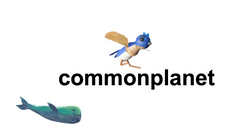Zoos, at face value, are quite paradoxical when it comes to animal health and safety. Humans have always fascinated the wild, and zoos have been a wonderful place for scientists and civilians alike to immerse themselves entirely in their world and learn along the way. More recently, zoos are known as one of the best conservation tools in the world, housing many animal species that would have gone entirely extinct without human protection. However, dozens upon dozens of studies have shown the psychological and physical damage that has come to zoo animals, rendering them inept at even the basic requirements of living. Does harm caused by zoos outweigh the good? Do we need zoos anymore in the modern era?
Zoos have not always been seen as a staple of biological education and a powerful tool in conservation. Before the 20th century, zoos started as a private collections of animals for the wealthy, a device that symbolized man’s triumph over the beast. From this performance of caging nature within bars, the leap to altruistic protection was more of a hop, maybe even a tiny shuffle. So zoos began rebranding as a sanctuary for the endangered, an oasis for the hunted, A place where people would amass to care for these animals in their biomes. While relabeling this way was extremely helpful for attracting schools and regular people to tour, it wasn't entirely true.
While many species were and are being protected in zoos, and many animals wouldn't even be alive today without it, hundreds of thousands more were harmed in these institutions. In an article published by AP news, Bob Jacobs from Colorado College states that “confined, barren quarters that lack intellectual stimulation or appropriate social contact” can damage the animals' mental capabilities to make decisions, plan events, and even damage their ability to remember. What is the point of conservation if the so-called conserved animals cannot survive in their habitats in the wild? Most large carnivores, such as lions that were bred in captivity, died almost immediately in the wild. Unfortunately, it would be miraculous to see a captive lion thrive in the savannas its parents were taken from. Even with proper enrichment and exercise, the cognitive abilities of these animals wouldn't allow them to live, as captivity damages the animals’ social facilities and natural behaviors.
While on the surface level, the morality of zoos is quite questionable, this dilemma is fabricated by effective rebranding. The potential for zoos to be a place made for saving animals and educating the public is there, but as of the moment, zoos have a net negative impact on the fauna inside their walls. So next time you go to a zoo, ask yourself, “Do we still need zoos?”
Daniel Kim (October 2022)

